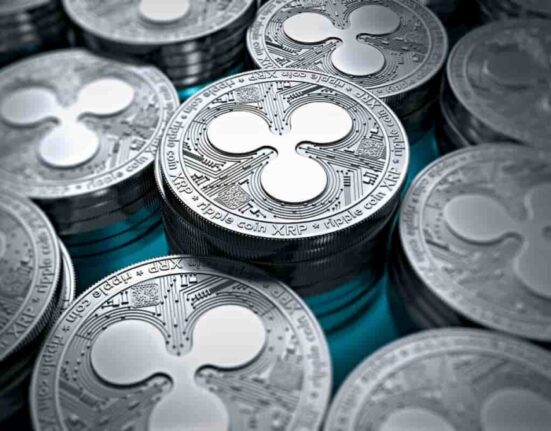Roger Ver, the most prominent backer of the Bitcoin Cash (BCH) hard fork, has filed a motion to dismiss an indictment against him.
As reported by Coindatacap Ver was arrested in Spain earlier this year after failing to pay roughly $50 million in taxes to the IRS.
Despite trying to run away from Uncle Sam by renouncing his US citizenship, Ver was still supposed to pay an exit tax. However, Ver was trying to evade paying tens of millions of dollars worth of taxes by transferring ownership of his coins to other companies that he still controlled.
The Bitcoin Cash proponent also provided false information to his accountant, failing to disclose massive Bitcoin sales.
However, in his motion, Ver paints himself as a victim of government overreach, arguing that the indictment is actually “unconstitutional.” The motion claims that the exit tax itself is a violation of the Sixteenth Amendment and the First Amendment’s Due Process clause. Ver’s lawyers say that the right to leave the country is “fundamental,” and the exit tax infringes on his right to expatriate.
The motion further states that the government failed to articulate the taxes that were purportedly owed by the early Bitcoin adopter. Ver claims that there were ongoing discussions regarding a civil resolution of the matter prior to his arrest in Spain.
Ver could possibly face decades behind bars if he gets convicted of all charges. The controversial entrepreneur already served 10 months behind bars in the early 2000s after selling explosives on eBay.
What Is Bitcoin Cash?
Bitcoin Cash is a cryptocurrency built on the same blockchain as Bitcoin. The coin launched on Aug. 1, 2017 through a so-called “hard fork” of the Bitcoin blockchain.
Some Bitcoin blockchain participants proposed altering the rules to allow Bitcoin to process a greater volume of transactions. Most nodes voted against changing the rules, which resulted in the hard fork, creating two blockchain paths with a common origin: Bitcoin and Bitcoin Cash.
“It felt almost like the fracturing of a religion,” said Henrik Gebbing, co-founder and co-CEO of Finoa, a digital asset custodian. “Miners had to decide which chain to allocate their efforts toward, exchanges had to decide whether or not to support trading of this newly forked currency, and market participants had to decide whether they had any interest in the new currency and what its fair price should be.”
How Does Bitcoin Cash Work?
Bitcoin Cash uses a larger block size than Bitcoin—blocks are groups of transactions added to the blockchain at the same time.
Bitcoin limits blocks to 1 megabyte (MB), which allows only about seven transactions per second. Bitcoin Cash expanded the block size to 8 MB initially, and later to 32 MB, which allows it to process over 100 transactions per second.
Beyond block size and transaction speed, Bitcoin Cash works very similarly to Bitcoin. It’s an open-source, decentralized digital ledger that utilizes proof of work.
Bitcoin Cash (BCH) emerged from a hard fork of the Bitcoin blockchain in 2017. Here’s a breakdown of how it works:
Similarities to Bitcoin:
- Decentralized Network: Like Bitcoin, Bitcoin Cash operates on a decentralized network without a central authority. Miners compete to validate transactions and secure the network.
- Proof-of-Work Consensus Mechanism: BCH uses the same Proof-of-Work (PoW) consensus mechanism as Bitcoin. Miners solve complex mathematical puzzles to add new blocks of transactions to the blockchain and earn rewards in BCH tokens.
- Limited Supply: Bitcoin Cash has a capped supply of 21 million coins, mirroring Bitcoin’s finite supply.
Key Difference: Block Size
The primary distinction between Bitcoin and Bitcoin Cash lies in block size. Bitcoin’s block size is limited to 1 Megabyte (MB), restricting the number of transactions a block can hold. This limitation aimed to maintain decentralization by keeping the blockchain size manageable for individual miners to participate.
Bitcoin Cash increased the block size to 8 MB initially, and later to 32 MB. This larger block size allows BCH to process a significantly higher number of transactions per second compared to Bitcoin.
Benefits of Larger Block Size:
- Faster Transactions: By accommodating more transactions per block, BCH offers faster transaction processing times compared to Bitcoin. This can be especially beneficial for low-value everyday transactions.
- Lower Fees: Due to faster processing and less competition within blocks, transaction fees on Bitcoin Cash are generally lower than on Bitcoin.
Potential Drawbacks:
- Centralization Concerns: Some argue that a larger block size might lead to centralization, as only miners with powerful computing resources can efficiently compete in the network.
- Security Considerations: There are ongoing debates regarding the potential security implications of a larger block size. Some believe it could make the BCH network more vulnerable to attacks.
Bitcoin Cash also has its own native token, BCH, which functions similarly to Bitcoin (BTC). Users can hold, trade, and spend BCH.
Miners confirm and add transactions to the blockchain by using cryptography to solve equations, receiving Bitcoin Cash tokens as reward for their work. They can then sell the coins to others. Bitcoin Cash will only release a total of 21 million coins, just like Bitcoin.
Bitcoin vs. Bitcoin Cash
As noted, the key difference between Bitcoin and Bitcoin Cash is the block size. Because of this adjustment, Bitcoin Cash can have faster and less expensive transactions. A Bitcoin transaction costs $59 on average while Bitcoin Cash costs less than a penny.
The downside to processing everything more quickly though is that it’s potentially less secure than Bitcoin. There are fewer miners needed to process and confirm transactions, which could make it easier for the Bitcoin Cash security to be compromised.
“Bitcoin cash would be better for something like a cup of coffee, while a larger purchase, such as a car or house, may warrant a slower and more secure cryptocurrency like Bitcoin,” said Daniel R. Hill, president of Hill Wealth Strategies in Virginia.
Another difference is market size. As of writing, Bitcoin Cash has a total market capitalization of around $7.1 billion. This is a fraction of Bitcoin’s $881 billion market cap.
Disclaimer ||
The Information provided on this website article does not constitute investment advice,financial advice,trading advice,or any other sort of advice and you should not treat any of the website’s content as such.
Always do your own research! DYOR NFA
Coin Data Cap does not recommend that any cryptocurrency should be bought, sold or held by you, Do Conduct your own due diligence and consult your financial adviser before making any investment decisions!





Leave feedback about this